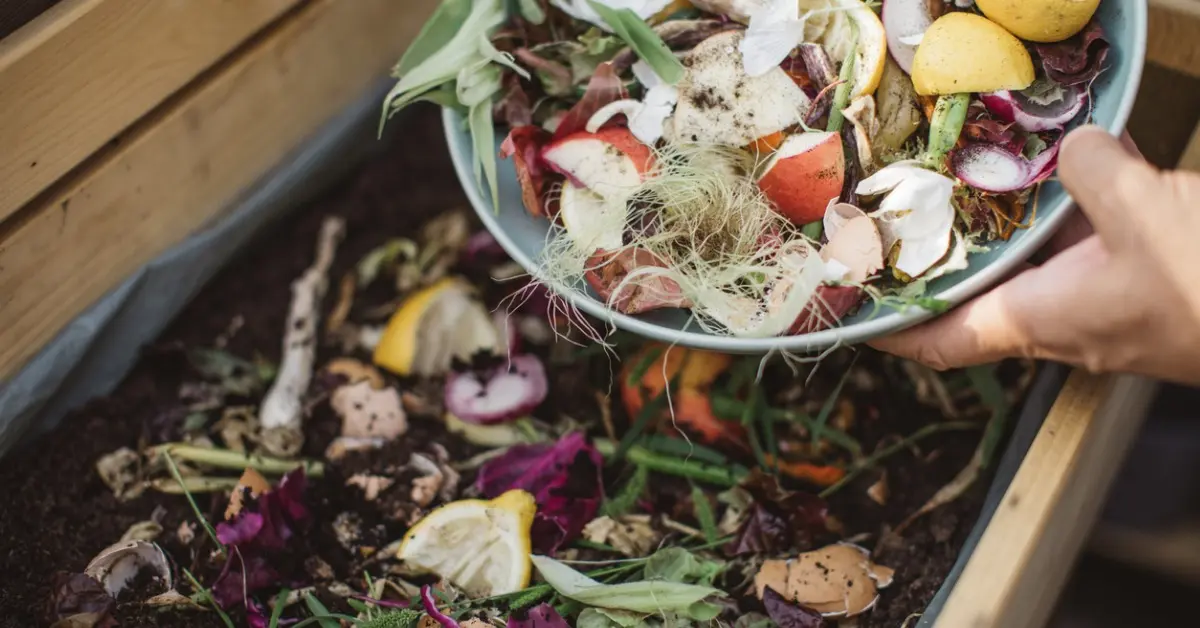In addition to the environmental benefits of composting, it’s an excellent hands-on way to teach kids about economics, ecology, biology, and more.
The best home compost piles are made with a balanced combination of nitrogen-rich (green) and carbon-rich (brown) materials. These provide the microorganisms that break down organic material the oxygen, nitrogen, and carbon they need to produce nutrient-rich soil.
1. It Reduces Waste
Food waste odors stink up the kitchen and attract pests, but when it’s recycled into compost, it becomes nutrient-rich fertilizer. This reduces the need for chemical fertilizers and also helps cut down on greenhouse gases generated by burning garbage in incinerators.
The process of making kitchen waste compost helps reduce the 30 to 40 percent of food that’s wasted in America each year. It’s an easy, convenient way to make use of the waste produced in your home while helping your garden grow healthy and strong.
Add kitchen scraps like fruit and vegetable peelings, coffee grounds and tea leaves and eggshells to your compost pile or bin, along with carbon-rich brown materials such as dried leaves, straw, sawdust and shredded paper. Turn the compost regularly to promote aeration and speed up decomposition.
2. It Saves Money
While composting kitchen scraps and yard trimmings, you’re also reducing the need for chemical fertilizers. And using this rich soil in your garden helps it retain moisture, so you won’t have to water as often.
Home composting also saves on trash service fees and reduces the amount of waste that goes to landfills. Some people even use clamshell take-out containers and plastic salad greens and vegetable storage bags to hold their scraps until they can drop them off at the compost bin or a local pick-up site.
To make your own at-home compost, mix food scraps with equal parts “browns,” such as dry leaves or hay, straw or wood chips. The pile needs to be properly balanced and aerated to avoid unpleasant odors and ensure the proper decomposition of food scraps.
3. It Reduces Greenhouse Gases
When biodegradable waste ends up in landfills, it decomposes anaerobically, producing greenhouse gases including methane that affect climate change. Composting prevents this by diverting food scraps from the landfill and instead turning them into soil carbon through a natural process.
A well-functioning compost pile requires a mix of greens (nitrogen rich) and browns such as fruit and vegetable scraps, shredded leaves, paper products and straw, with adequate moisture and air to break them down. Kitchen composting can be done with bins designed to keep the pile contained and odorless or on-ground piles that are turned to speed up the process.
Once composted, it enriches the soil with nitrogen, phosphorus and potassium. This improves the quality of the soil, increases water retention and enhances microorganism activity.
4. It Reduces Pests
Instead of wasting food scraps, they can be turned into nutrient-rich compost. This natural process also encourages sustainable gardening practices, eliminating the need for chemical fertilizers.
Healthy soils mean healthy plants and a healthier planet. By using a commercially available plastic bin or creating your own worm-based system, you can transform kitchen waste into rich pre-compost to add to garden soil.
When adding green waste, remember to balance them with carbon-rich browns like dry leaves, shredded newspaper and straw. Also, aerate your compost pile regularly to accelerate decomposition and reduce foul odors. When adding meat or dairy, cover them to protect against unwanted vermin. Stable flies, stink bugs and green June beetles are attracted to uncovered organic materials but can be deterred with a layer of cardboard or a wire mesh barrier underneath your bin.
5. It Reduces Soil Erosion
Today’s intensive agricultural methods have led to nutrient depletion of soil, which then gets passed onto the food we consume. Composting your food scraps is a natural way to recycle these nutrients back into the soil and provide vital vitamins and minerals for plants to grow.
Healthy compost contains a variety of nutrients that provide slow-release nourishment for crops, eliminating the need for chemical fertilizers. Also, compost enables the soil to retain water better, making it more resilient against storms and other weather conditions.
To make your own kitchen scrap compost, mix equal parts of “greens” (like fruit and vegetable peelings, coffee grounds, tea bags and old bread) with “browns” like leaves, shredded paper and straw. Add a little moisture and turn the pile periodically for aeration and to speed up the process.

